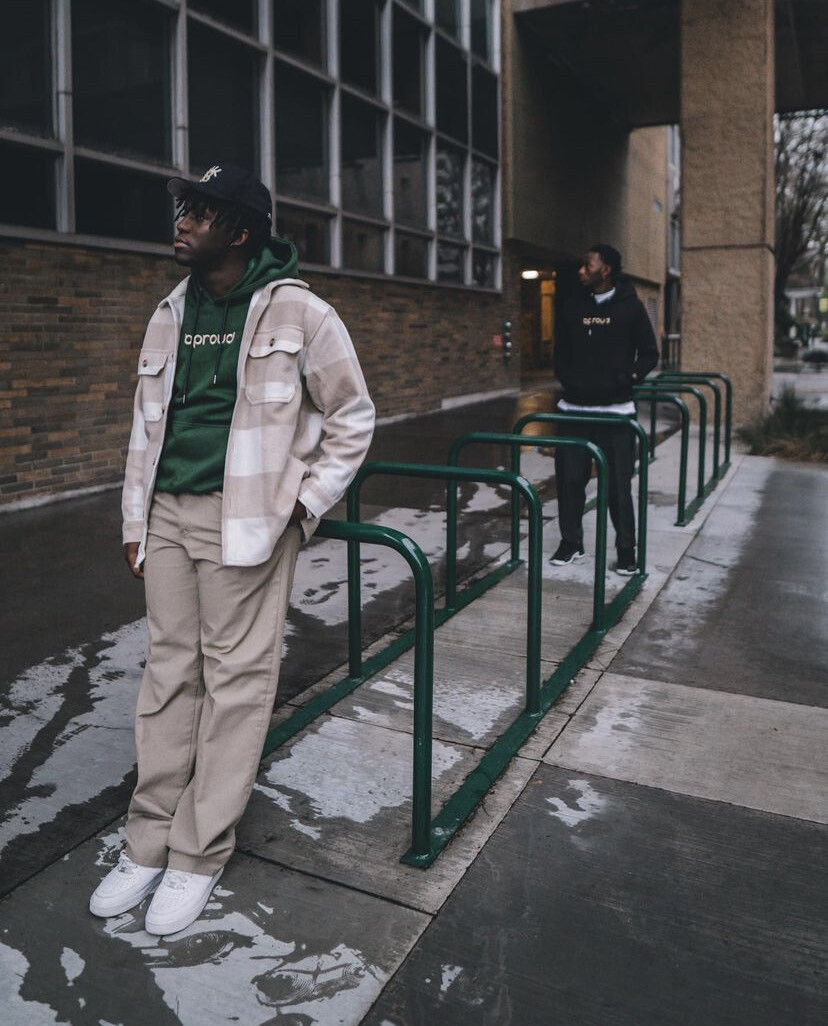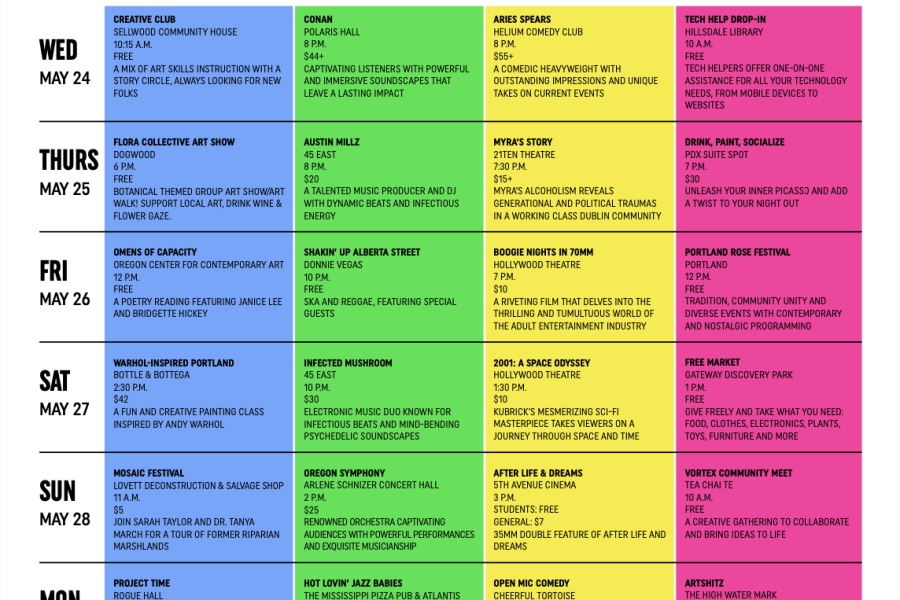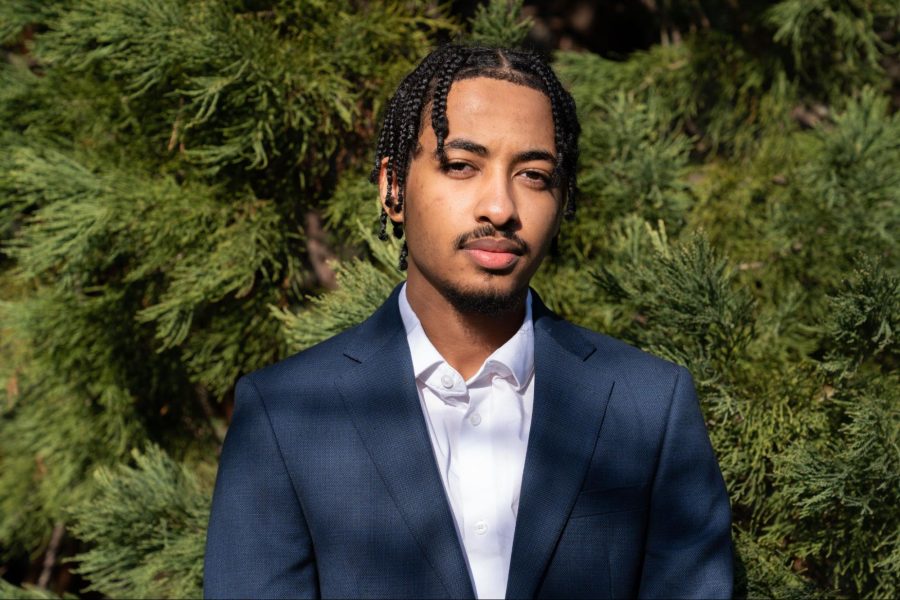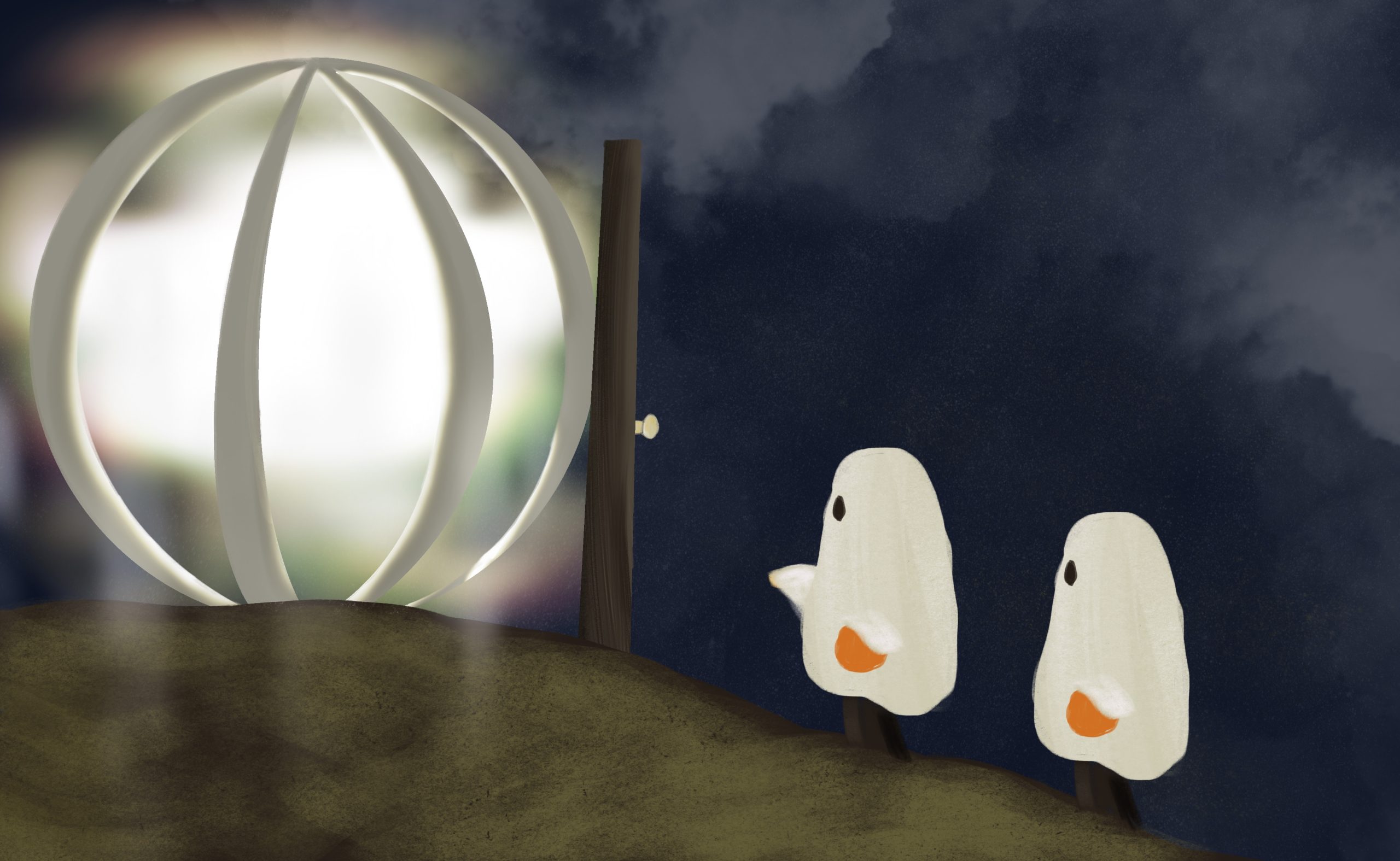Japhety Ngabireyiamana and Jospin Mugisha are cousins who lived and played in a refugee camp in Tanzania, East Africa. Japhety would run around playing soccer, hanging out with friends during the day—then eating homemade food with his extended family members in the evenings. Life was carefree, albeit impoverished—dirt floors, no stove, no running
water.
Japhety’s family stayed 10 years in the refugee camp just beyond the borders of Burundi in Kibondo, Tanzania.
Then one day, the family heard that they had been chosen to travel to yet another unknown land—the United States. One of the families sponsored by Shepard of the Valley Lutheran Church (through the World Relief Organization) to come to Oregon, they migrated once more to establish a home for their growing family.
Japhety and Jospin both immigrated to the U.S. in 2007, Japhety eight and Jospin six. They started school at the Beaverton School District, where only 2.2% of the student population is Black, according to the U.S. Census Bureau. They experienced racism and bullying from many white kids in their new home, and were teased and harassed to the point that they denied their African culture and heritage. The long-standing displacement and inexplicable racism was extremely traumatic for the young boys.
Japhety remembered walking into the Beaverton elementary school classroom and being surrounded by white faces, all of which were staring at him. Kids made fun of him and teased him: for his clothing, his food and even his smell.
He tried his best to fit in, to erase his African heritage. “I didn’t want to be African anymore,” Japhety said. “I wanted to lose all traces of my culture.” He coped by playing sports and trying his best to blend in.
“In the refugee camp, I was surrounded by people that ate the same, dressed the same, talked the same and had the same skin color,” he said. In this new school, Japhety could not even ask to use the bathroom because he did not yet speak English—he spoke Kirundi. At first, the only English words he knew were “thank you.”
Luckily, his family moved to NE Portland, where Japhety met Dr. S. Renee Mitchell.
The door to the Soul Restoration Center in NE Portland is covered with hand-written statements such as “I am whole, I am vibrant, strong and happy, I am enough, I am unstoppable, I am beautiful, adventurous and grateful.” This is the outlook behind the I Am M.O.R.E. (Making Ourselves Resilient Everyday) program that Mitchell is running.
Mitchell works with kids who have experienced trauma, mostly Black kids. She describes herself as a “spirit gardener.” Her goal is to shift their internal belief in their own capacity to inspire through a program based on evidence, research and theory.
When she first met Japhety, she described him as “a tall, handsome guy, he did not speak
loudly, didn’t look you in the eye very much. Didn’t have a sense of himself. It felt like he was
trying to hide—to be invisible.” Where did this trauma come from?
Mitchell explained that, sure, growing up in a refugee camp had its difficulties—resources were slight—probably not enough food to eat, but he had family, a lot of love, and laughter. When Japhety came to the U.S., she said, “he is a fish out of water—people were racist, they treated him badly. He absorbed all of that, internalized all of that, and that is why he caved into himself. It’s about white supremacy—there is no way [for him] to understand where all that bullying is coming from.”
Through Mitchell’s guidance, Japhety recalled his trauma and abuse at an I Am M.O.R.E.
conference in Philadelphia a few years ago. Japhety stood on a stage in front of hundreds. “I remember in middle school, these four white boys with blond hair continuously bullied me from sixth through eighth grade,” he said. “I remember they would walk past me and start pushing me, assaulting me and disrespecting my culture…”
Mitchell described how the I Am M.O.R.E. program worked: “We encouraged them to share their stories, build their confidence and value themselves, exposing them to different things,” like art, music, poetry, history and writing. She leaned into what the kids were interested in doing.
“We were putting on a ‘story-telling fashion show’—and Japhety volunteered to be a part of
it,” Mitchell said. This was meant as a mechanism to tell their story, with three changes of
clothing, in front of an audience. They told their personal trajectory through life, underscoring
the trauma that they had experienced.
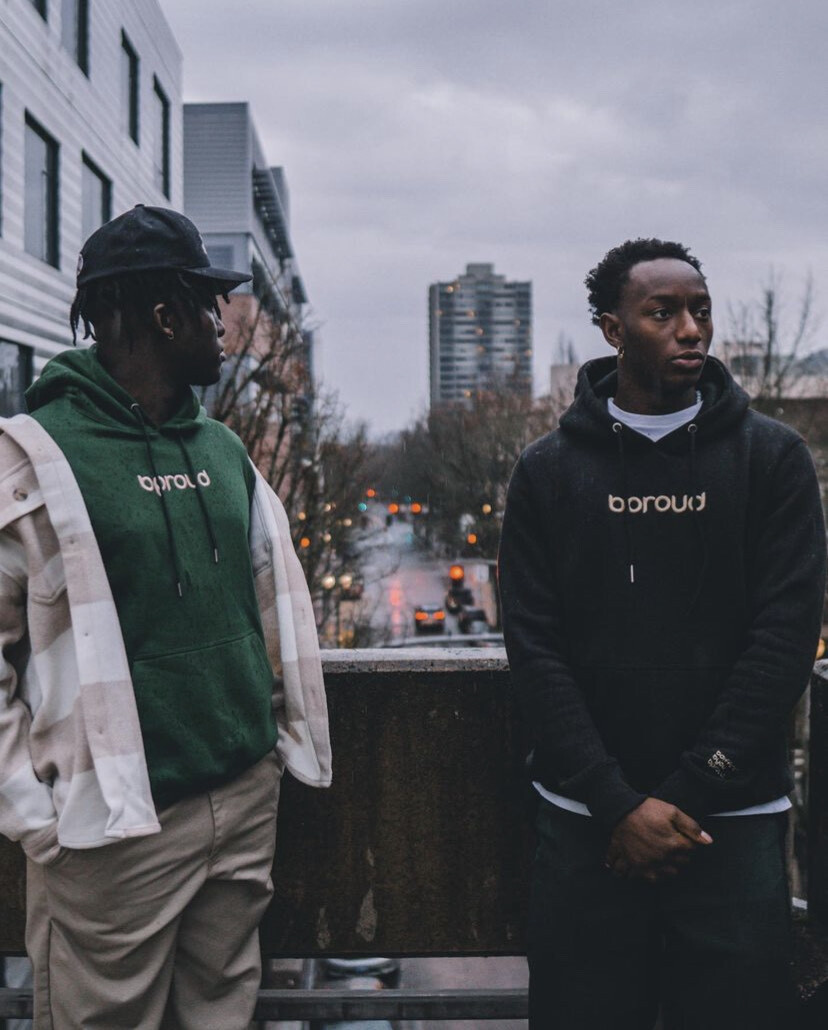
Japhety walked onto the stage, first in African clothing, wearing a Kente cloth tied
at one shoulder. Then he changed into American garb: a blue jean jacket with an American flag on the back. Lastly, a tailored jacket embellished with beautifully woven multi-color Kente fabric, blending the two cultural heritages.
A big contagious smile crossed his face. He stood tall, and spun around, showing off the cloth and his pride. Playing in the background was his recorded voice telling his story of going from a place of self-loathing to that of self-acceptance.
He reclaimed his African culture, music and traditions. As for the participants, “they got a standing ovation! They were rock stars!” Mitchell said.
Japhety’s paternal cousin, Jospin Mugisha, arrived in Beaverton just a few months earlier than
Japhety. At first, only his mother liked the idea of emigrating. Once a senator in Burundi and now a businessman in Tanzania, his father was content living where they were.
All this changed when their family was attacked and his mother beaten by Burundi soldiers. They filled out the immigration application with UNICEF and were granted asylum.
The move to the U.S. changed him. Jospin said that he internalized the racism, that it
was “easy to forget [my] culture and assimilate. It was not cool to be African,” he said. Each morning, he left his homemade lunch and African clothing behind so he would not be bullied at school. Jospin moved in third grade and took this opportunity to reinvent himself. He started saying that he was born in California.
Near the end of his junior year of high school, the pandemic hit. No more school. “I had a seven-month summer—hella excited,” Jospin said. “I would drive to Portland, and play basketball with my cousins at McCoy park. We started speaking Kirundi to each other.”
By Jospin’s high school senior year, he and Japhety were having Zoom calls nightly. Japhety wanted to start a family business and knew that Jospin did graphic design work as a side hustle. They brainstormed late into the evening.
How did bproud come into existence?
Jospin said that he began by making clothes for himself, and screen-printing
messages around the Black Lives Matter movement. “It was right after the George Floyd
situation happened,” Jospin said. While they didn’t want to profit from the BLM movement, Jospin and Japherty did want to exert a positive message for their logo that built up their community. It seemed natural to Japhety that they work on creating a clothing business.
Jospin and Japhety came across the phrase “Be Proud.” Japhety had been working with
Mitchell, and liked the idea of claiming one’s identity. Jospin worked late into the night on the
logo and font and came up with “bproud,” the letter “b” printed in black, signifying a Black-owned business.
Jospin sent his design to Japhety first thing in the morning. “It’s perfect!” Japhety exclaimed.
The first Instagram post was created with professional photos of sample clothing and a strong message of intent. They wore their dashiki, traditional African clothing and the bproud crewnecks. Their family and friends liked and shared, and soon they had over 300 followers.
Six months later, the brand was launched with a supply of crewnecks and hoodies. The Portland community embraced them. “Off rip, everyone was onboard,” Jospin said. They sold out in the first month.
PSU collaborated with the brand by hosting a space for bproud to sell their products in SMSU. Brilliantly, Jospin and Japherty designed an interactive display by writing the words “I am proud to be ____” on the surrounding glass wall.
Jospin explained that he was expecting words like African, gay or bisexual but was not expecting what they got: words like first-generation student, mother and persistent. The one he remembers the most was, I am proud to be here. “Mental health is…I am proud to be here—I am proud to be alive,” Jospin said. “This changed everything for us, from that moment on—bro, it was like this could mean anything.”
What are Jospin and Japhety up to now?
Jospin plans to spend time enhancing the bproud brand during his gap year. He will work on
creating systems to automate, defining the foundations for scaling up and increasing the
product line. “We want [bproud] to mature naturally,” Jospin said. “We want people to wear it because they are called to it and because it looks good. It is our baby.”
Japhety has a full-ride merit scholarship at PSU. He is taking 18 credits and will soon graduate with a Bachelor’s in Marketing and a certificate in Athletic and Outdoor Studies. His favorite class this term is Global Sourcing and Negotiations with Daniel Wong.
He is also working about 20 hours a week at 1338Tryon, a promotional product supply
company that has contracts with Amazon and Intel, among others. Melinda, the warehouse manager, explained that Japhety is a leader committed to promoting multicultural education and diversity awareness in the workplace.
Japhety is also supporting his family business, Happiness Family Farm, in which the family grows and sells organic produce across the PNW. “My family was poor, so we grew much of our own food, especially the African vegetables that we were missing,” said Japhety. “Food was a temple for the African community—it reconnected them back to the motherland.”
Japhety and Jospin have recently been awarded the Portland INOO Entrepreneur Under 25 Award for their apparel brand that celebrates individuality.
“When you are grounded in your power, when you know who you are, then you want to empower others,” Mitchell said. “He is that hero—heroes have support—he wants to be that support to others.”

